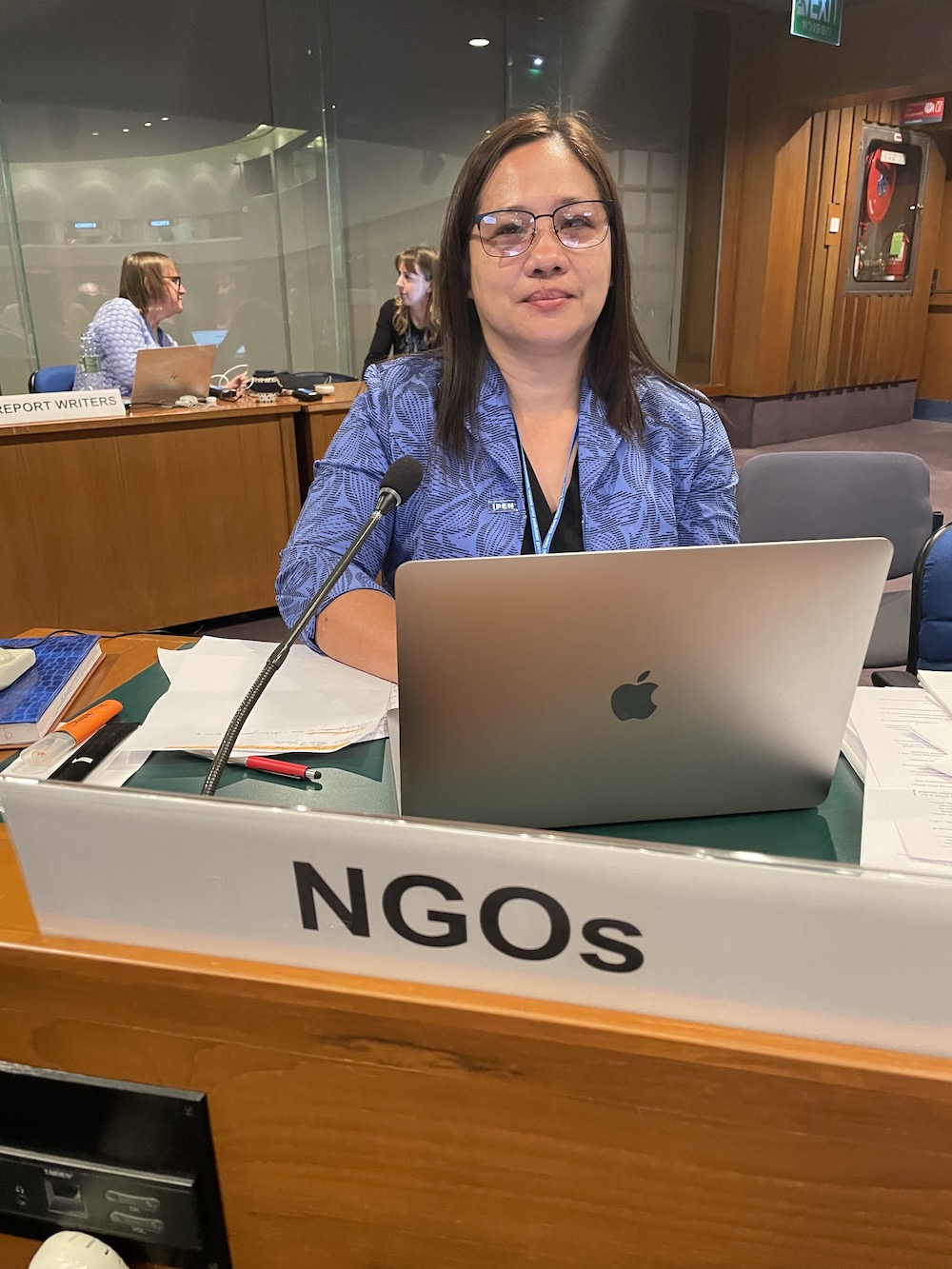Interventions
Closing Intervention
Presented by Punyathorn Jeungsmarn, EARTH Thailand, 3 February, 2023
Thank you, Madam chair,
I am from Ecological Alert and Recovery – Thailand or EARTH, speaking on behalf of IPEN.
Chemicals, waste and pollution is a global crisis, that has a particular impact on local communities. There is very little access to knowledge at the local levels, and often, the extent of local awareness is that a factory has released some foul smell, some strange-colored water, or that they are stricken by sickness they cannot explain. We also often find that local authorities lack the knowledge to explain the dangers to them.
This also means that locals cannot provide their valuable on-the-ground insights on environmental contamination to scientists and policymakers. The work of the Science-Policy Panel could help bridge these gaps through ensuring access to scientific data and through including the collection of information from local knowledge, indigenous knowledge and citizen science.
It is important that a strong conflict of interest policy is put in place to ensure the integrity and credibility of the panel, and to prevent corporate capture. A good approach that can be adapted for this panel is the WHO Framework Convention on Tobacco Control that includes an obligation to protect public health policies from the commercial and vested interests of the industry. We are also hoping for a transparent and inclusive intersessional period, where the willingness of all organizations and Major Groups to engage is utilized.
IPEN has been engaged in the science-policy discussion for over two decades and look forward to continuing to work in a constructive and collaborative manner through the upcoming meetings.
Thank you.
Intervention on the function of a Science-Policy Panel
Presented by Lemuel Manalo, 30 January, 2023
Thank you Madam Chair.
I am Lemuel Manalo, from the Interfacing Development Interventions for Sustainability (IDIS), an Environmental Non-Government Organization in the Philippines. I am speaking on behalf of International Pollutants Elimination Network (IPEN), a global network of public interest, civil society organizations in more than 120 countries.
We agree with previous speakers that have highlighted the importance of aligning the work with the text of the UNEA resolution.
The resolution lists horizon scanning as a principal function. IPEN believes that this function is crucial to reach the objective of the panel, as described in the UNEA resolution, since it could help address current and future knowledge gaps on chemicals.
In the UNEA resolution, information sharing between countries is also listed among the principal functions of the panel. Today, scientific publications on chemical hazards for health and environment are often not publicly available. These are important resources for governments as well as citizen-science initiated programs and monitoring systems. The lack of access to scientific data has become a major obstacle for the sound management of chemicals.
IPEN therefore strongly supports the inclusion of information sharing functions of the panel. This will help increase accessibility and availability of knowledge, technologies, and information for both government and non-government stakeholders.
I thank you Madam Chair.
Intervention on the scope of a Science-Policy Panel
Presented by Chinkie Peliño-Golle, 30 January, 2023
Thank you, Madam Chair for giving me the floor.
I am Chinkie Peliño-Golle from EcoWaste Coalition based in the Philippines, and I am speaking on behalf of IPEN - the International Pollutants Elimination Network, a global network of public interest, civil society organizations in more than 120 countries.
IPEN believes that the main focus of the future panel should be on chemicals and that the panel should work complementarily with existing policy frameworks and expert bodies.
The working document on scope suggests the establishment of an objective to help guide the discussion on the scope. However, we do not believe that the proposed objective is in-line with what was adopted in the UNEA resolution, or that it would be sufficient to achieve the intended purpose of this panel, since 1) The suggested wording omits chemicals, which is a principal focus of the resolution; 2) It proposes an approach “...through evaluation of relevant value chains,” which is not a function included in the resolution and indicates a focus on products rather than the impact of chemicals throughout their lifecycle; and 3) It focuses on assessing sources of waste and pollution, a focus that would neglect the prevention of harm from toxic chemical
Therefore, we believe that a more suitable approach would be to center the objective on the aim of the panel, similar to already existing science-policy bodies.
Thank you.

